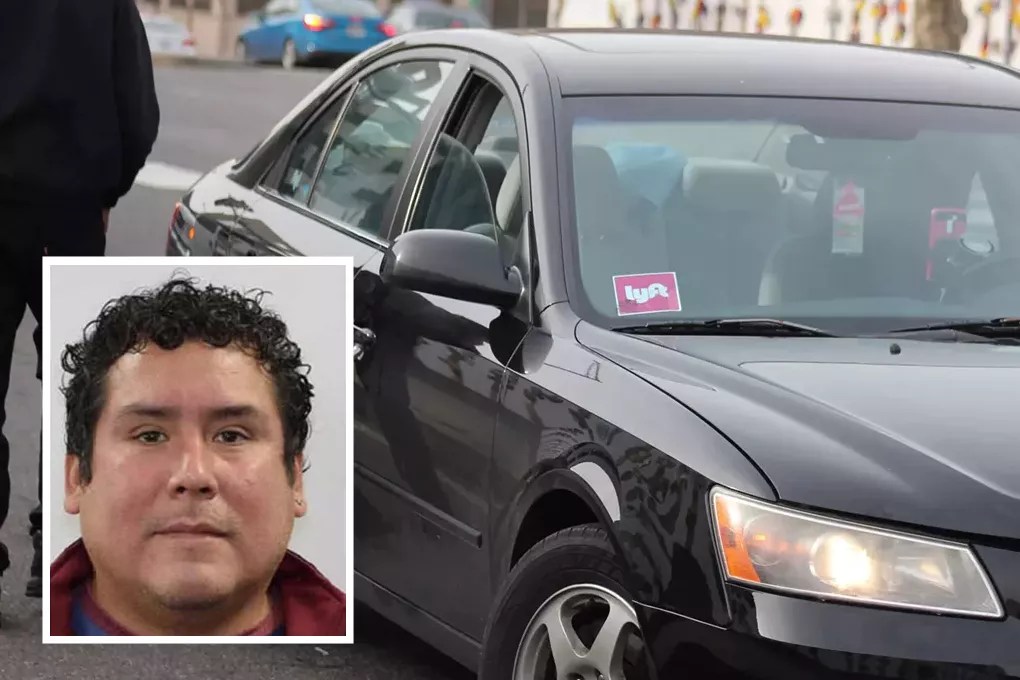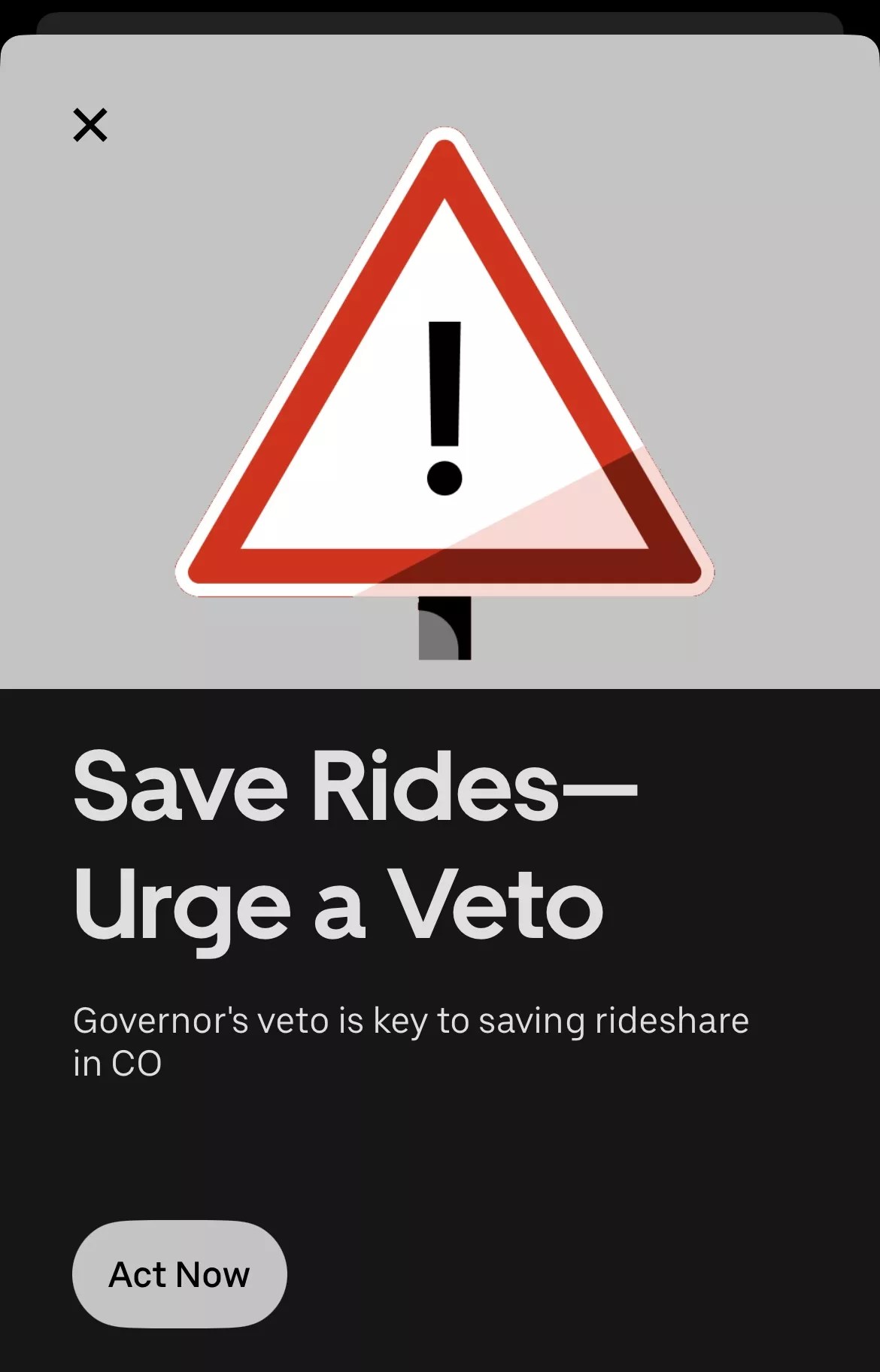
Elvert Barnes/Flickr and the Denver District Attorney’s Office

Audio By Carbonatix
Editor’s note: At 3:30 p.m. on Friday, May 23, Governor Jared Polis’s office announced that he had vetoed House Bill 23-1291.
For four years, John Pastor-Mendoza used his job as a Lyft driver to victimize the women of Denver.
Pastor-Mendoza targeted women leaving downtown bars, pretending to be their assigned driver to lure them into his vehicle. Several victims say he gave them water bottles laced with drugs, causing them to black out. Some woke up in an unknown home with Pastor-Mendoza, missing their underwear and other personal belongings. Others awoke to Pastor-Mendoza on top of them inside the vehicle, according to the arrest affidavit.
Pastor-Mendoza, 43, was sentenced in March to 290 years in prison for thirty charges connected to the kidnapping, sexual assault and attempted assault of a dozen women. Ten of those survivors are now asking Governor Jared Polis to sign a bill intended to improve rideshare safety.
“Governor Polis, you have the power to make Colorado’s rideshare system safer,” the survivors wrote in a letter sent to Polis on May 13 and shared with Westword on May 21. “We ask you to put politics aside – just long enough to do what is right.”
State legislators passed House Bill 25-1291 on May 7. If signed by Polis, it would require background checks for rideshare drivers every six months, establish policies to crack down on unauthorized driver account sharing, and speed up the timeline for companies to respond to law enforcement investigations and user reports of assault, among other changes.
The survivors’ letter to Polis comes as Uber and Lyft are urging the governor to veto the bill. Uber has threatened to cease operations in Colorado if Polis signs the policy into law.
Eric Maruyama, spokesperson for the governor, says Polis is still reviewing the final version of the bill. However, its chances appear slim.
“The governor is not planning to take any action that would lead to ride-sharing companies leaving the state,” Maruyama says. “He has shared concerns about privacy, conflicts with federal and existing state law, and the ability of the bill to be successfully implemented, as well as the ability for TNCs to successfully comply. He wants TNC companies to continue to operate in Colorado, supporting nearly 50,000 jobs.”
Over 19,000 reported sexual assault incidents occurred during Uber and Lyft rides between 2017 and 2022, according to the companies’ safety reports. The rideshare safety bill was inspired by the experience of its sponsor, State Representative Jenny Willford, who says she was sexually assaulted by her Lyft driver outside of her Adams County home in February 2024.
“Rideshare companies will argue that there will always be bad actors and that no regulations can catch them all. If this bill can prevent even one bad actor from slipping through, isn’t it worth it?” the survivors’ letter to Polis reads. “The inability to stop every predator is not a justification for stopping none.”
In response to the letter, Maruyama says Polis “is committed to making Colorado safer for everyone, including making sure ride-sharing companies are keeping riders and drivers safe.”
“The governor appreciates the bravery of any sexual assault survivor who shares their story and is committed to ensuring perpetrators of sexual crimes are held accountable to the full extent of the law,” he adds.

Uber has added multiple pop-up messages to its app directing Colorado customers to ask their legislators and the governor to oppose House Bill 25-1291.
Uber
Uber initially opposed portions of the bill that would have required all rides be recorded and prohibited drivers from giving passengers food or water, calling the former a “technical and financial burden” and saying the latter would open the company up to excessive lawsuits. Legislators then amended the bill to only require recordings if both a driver and passenger opt in, and to only allow civil suits if an incident results in death, sexual assault, kidnapping or personal injury.
The amendments did not ease Uber’s concerns, telling Westword on May 7 that they still urge a veto. Although Lyft isn’t threatening to flee the state if the bill is signed, the company formally requested a veto on May 13.
“HB25-1291 [was] developed behind closed doors and driven by the financial interests of billboard attorneys – not the needs of Coloradans,” Uber spokesperson Gabriela Condarco-Quesada says. “If enacted, this legislation would force Uber to shut down operations.”
In their letter, the survivors say they do not want to drive rideshare companies out of the state, but they want to ensure that “the industry that markets itself as a safe choice for a ride home” lives up to that promise by enacting “basic safety measures.”
“We are not seeking revenge, nor are we trying to dismantle a multi-billion-dollar industry,” the letter reads. “What we want is simple: to ensure that what happened to us doesn’t happen to someone else.”
The survivors say the bill’s provisions are based on the experiences of people victimized by rideshare drivers, pointing to the component that prohibits drivers from giving food and drinks to passengers, as that is how Pastor-Mendoza drugged some of his victims.
The bill would also ban individuals from being drivers if they have impersonated a driver (as Pastor-Mendoza did) or shared a driver account; Willford says her attacker used another man’s Lyft driver account when he picked her up.
It is unclear whether Pastor-Mendoza was ever legitimately assigned to respond to the rideshare request of his victims, though some said the Lyft sign on his vehicle convinced them it was safe to enter. He may have also attacked more passengers than have been publicly identified. The arrest affidavit says he frequently stole the phones and wallets of his victims; when police searched his home, they found 22 cell phones.
Lyft confirmed Pastor-Mendoza drove for the company, but said he was permanently removed following the news of his arrest.
Many other rideshare assault cases have come out of Colorado in recent years. In April 2024, Lyft driver Shengfu Wu was sentenced to nine years in prison for raping a thirteen-year-old passenger in Aurora. In March 2024, Uber driver Nesrelah Bedru Kemal was arrested and charged with sexually assaulting a passenger in Denver.
“There are not just twelve of us living with the consequences of rideshare companies that have resisted stronger safety protocols…there are thousands,” the survivors’ letter reads.
“We can – and must – do better.”
Polis has until June 12 to sign, veto or let the bill become law. Read the full letter from the survivors below.